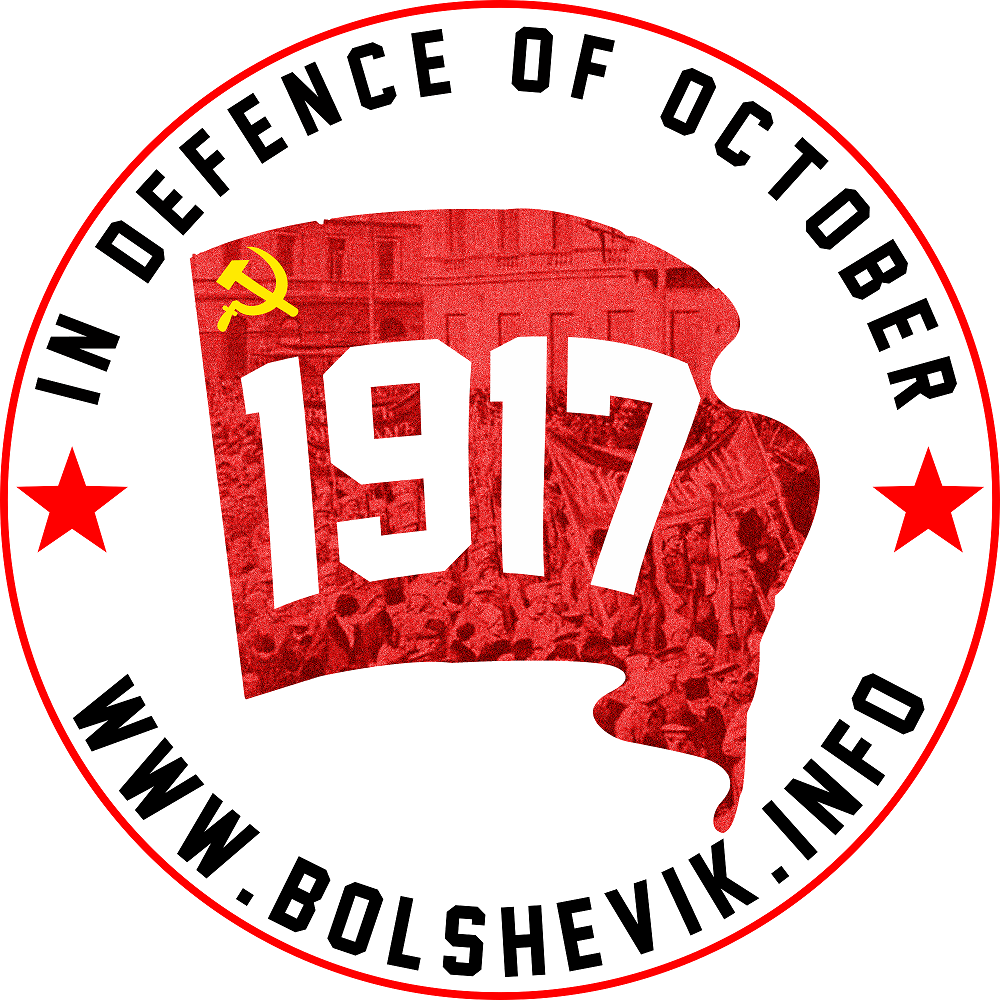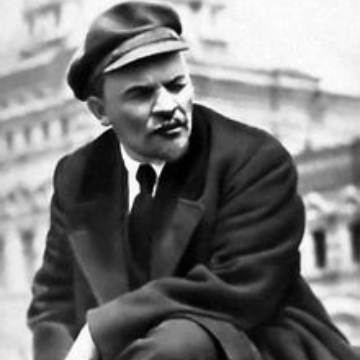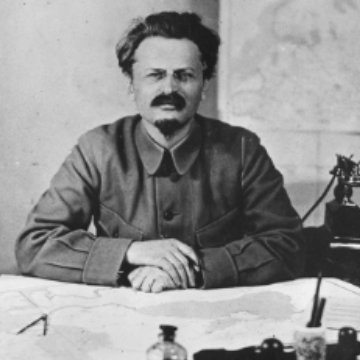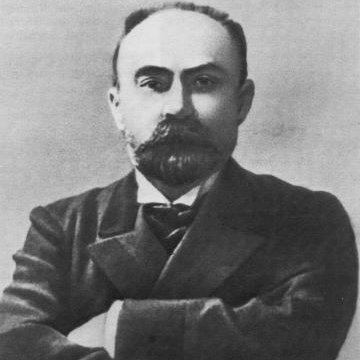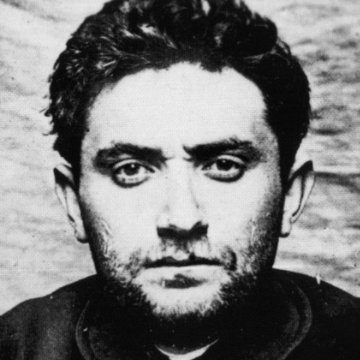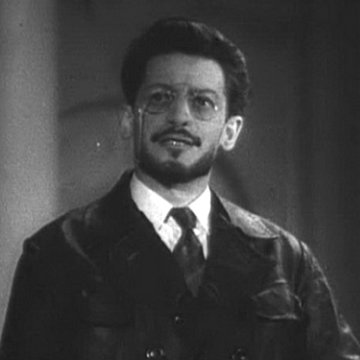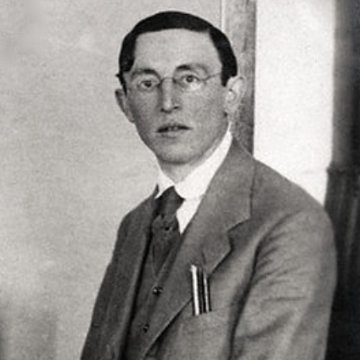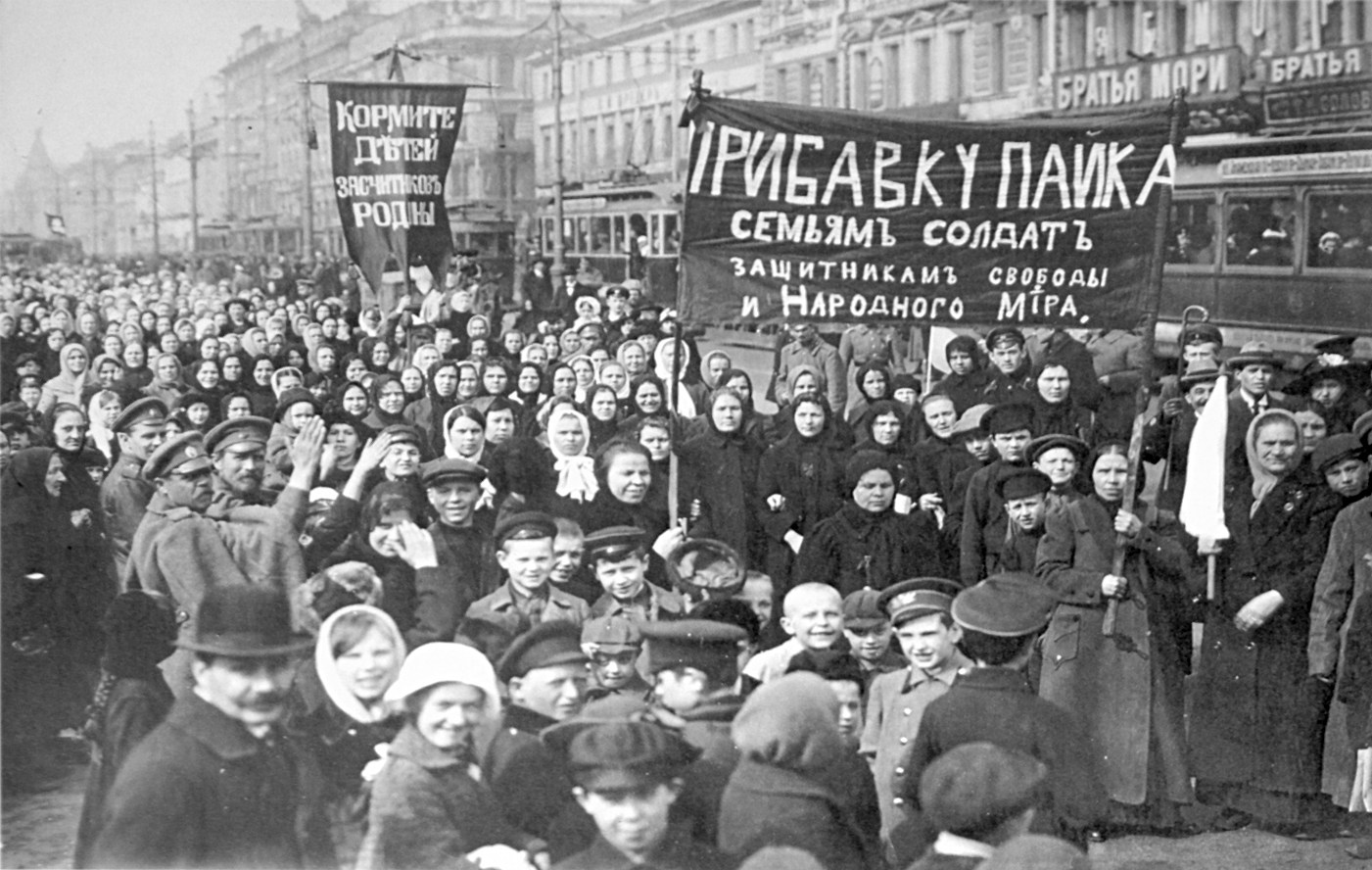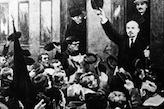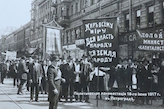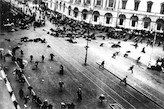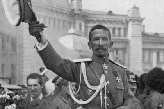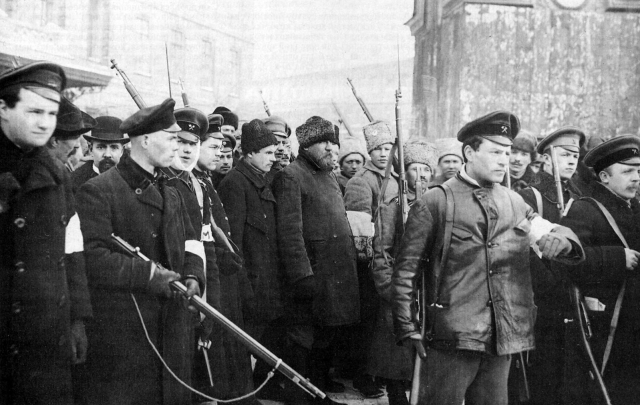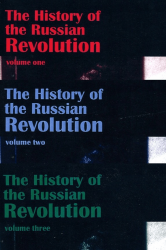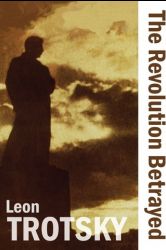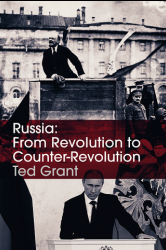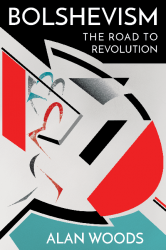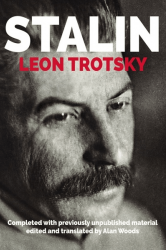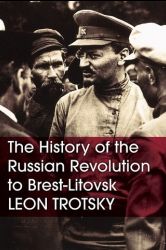2) Report on the Current Situation May 7 (April 24)
Comrades, in evaluating the current situation I have to deal with an exceedingly broad subject, which, to my mind, falls into three parts. First, the estimate of the political situation proper here in Russia, our attitude towards the government and the dual power that has come into existence; second, our attitude towards the war; third, the international background to the working-class movement, a situation which has brought the workers of the world face to face with a socialist revolution.
I think, I shall have to deal only in brief with some of the points. Furthermore, I am going to submit to you a draft resolution on all these questions with this reservation, however, that, owing to the extreme lack of facilities and to the political crisis that has been created here in Petrograd, we were unable to have discussions of the resolution, or to communicate it in good time to the local comrades. I repeat, then, that these are only preliminary drafts, designed to make work easier in the committee and concentrate it on a few of the most essential questions.
I begin with the first question. If I am not mistaken, the Moscow Conference adopted the same resolution as the Petrograd City Conference. [Interruption: “With amendments.”] I have not seen the amendments, and I cannot pass an opinion. But since the Petrograd resolution was published in Pravda, I shall take it for granted, if no one objects, that it is known to everybody here. I submit this as a draft resolution to the present All-Russia Conference.
Most of the parties in the petty-bourgeois bloc controlling the Petrograd Soviet represent our policy, in contrast to their own, as a rash policy. What distinguishes our policy is our demand above all for a precise class analysis of current events. The chief sin of the petty-bourgeois bloc is that it resorts to empty phrases to conceal from the people the truth about the government’s class character.
If the Moscow comrades have any amendments, they may present them now.
(Reads the resolution of the Petrograd City Conference on the attitude towards the Provisional Government.)
“Considering:
“(1) that the Provisional Government, by its class character, is the organ of the landowner and bourgeois domination;
“(2) that the Provisional Government and the classes it represents are bound with indissoluble economic and political ties to Russian and Anglo-French imperialism;
“(3) that the Provisional Government is carrying out its proclaimed programme only partially, and only under pressure of the revolutionary proletariat and, to some extent, of the petty bourgeoisie;
“(4) that the forces of bourgeois and landowner counter revolution, now being organised, have already, under cover of the Provisional Government and with the latter’s obvious connivance, launched an attack on revolutionary democracy;
“(5) that the Provisional Government is avoiding fixing the date for the elections to the Constituent Assembly, preventing the arming of the people as a whole, opposing the transfer of all the land to the people, foisting upon it the landowners’ way of settling the agrarian question, obstructing the introduction of an eight-hour workday, condoning counter-revolutionary propaganda in the army (by Guchkov and Co.), rallying the high-ranking officers against the soldiers, etc....”
I have read the first part of the resolution giving a class definition of the Provisional Government. There are scarcely any essential differences between this resolution and that of the Moscow comrades, as far as it is possible to judge from the latter’s text alone. But the general definition of the government as counter-revolutionary is, in my opinion, incorrect. If we speak in general terms, we must specify which revolution we mean. As far as the bourgeois revolution is concerned, this cannot be said, because that revolution is already completed. As far as the proletarian and peasant revolution is concerned, such a statement is premature, for we cannot be sure that the peasants will necessarily go farther than the bourgeoisie. To express our confidence in the peasants, particularly now that they have turned to imperialism and defencism, i. e., to supporting the war, is, in my opinion, unsound. at the present moment the peasants have entered into a number of agreements with the Cadets. That is why I regard this clause in the Moscow resolution as politically incorrect. We want the peasants to go farther than the bourgeoisie, we want them to take the land from the landowners, but so far we can say nothing definite about their future conduct.
We studiously avoid the words “revolutionary democracy”. We may use them when there is a question of an attack by the government, but at the present moment they are highly deceptive, for it is very difficult to distinguish the classes which have mingled in this chaos. Our task is to free those who are trailing behind. The Soviets are important to us not as a form; to us it is important what classes they represent. We must, therefore, do a great deal of work to develop the class-consciousness of the proletariat....
(Resumes reading the resolution.)
“(6) that this government, at the same time, is relying at present on the confidence of, and, to a certain extent, on an actual agreement with, the Petrograd Soviet of Workers’ and Soldiers’ Deputies, which now unites an obvious majority of workers and soldiers, i. e., peasants;
“(7) that every step of the Provisional Government, in both its domestic and foreign policies, is bound to open the eyes, not only of the proletarians in town and country and the semi-proletarians, but also of the broad sections of the petty bourgeoisie, to the real nature of this government,
“the Conference resolves that:
“(1) in order to ensure all the state power passing into the hands of the Soviets of Workers’ and Soldiers’ Deputies or other bodies directly expressing the will of the people, prolonged work is necessary to develop proletarian class-consciousness and to unite the urban and rural proletarians against the vacillations of the petty bourgeoisie, for only work of this nature can guarantee real advance on the part of the whole revolutionary people;
“(2) this calls for many-sided activity within the Soviets of Workers’ and Soldiers’ Deputies, for work aimed at in creasing the number of these Soviets, consolidating their power, and welding together our Party’s proletarian internationalist groups in the Soviets;
“(3) we must organise our Social-Democratic forces more effectively, so as to be able to direct the new wave of the revolutionary movement under the banner of revolutionary Social-Democracy.”
This is the sum and substance of our policy. The whole petty bourgeoisie is now wavering and trying to conceal this wavering behind the empty phrase about revolutionary democracy. We must contrapose these waverings with a proletarian line. The counter-revolutionaries wish to frustrate it by premature action. Our task is to increase the number of Soviets, to reinforce them and to consolidate the unity of our Party.
The Moscow comrades have added to Point 3 the demand for control. This control is represented by Chkheidze, Steklov, Tsereteli, and other leaders of the petty-bourgeois bloc. Control without power is an empty phrase. How can I control Britain? To control her, you would have to seize her fleet. I can understand the uneducated mass of workers and soldiers naïvely and unconsciously believing in control. You only have to think about the fundamental aspects of control, however, to realise that such a belief is a departure from the basic principles of the class struggle. What is control? If I write a paper, or a resolution, they will write a counter-resolution. To control, you must have power. If the broad mass of the petty-bourgeois bloc do not understand this, we must have the patience to explain it to them, but under no circumstances must we tell them a lie. If, however, I obscure this fundamental condition by speaking of control, then I am guilty of telling a lie and am playing into the hands of the capitalists and the imperialists. “You’re welcome to your control, but we’ll have the guns. Enjoy your control,” they say. They know that at the moment the people cannot be denied their demand. Control without power is an empty petty-bourgeois phrase that hampers the progress of the Russian revolution. That is why I object to the Moscow comrades’ third point.
As for this peculiar interlocking of two powers, in which the Provisional Government, lacking power, guns, soldiers, and the armed mass of people, leans on the Soviets that are relying so far on promises and are carrying out a policy of upholding those promises, if you want to play this game, you are doomed to failure. Our task is to keep out of this game. We shall carry on our work of explaining to the proletariat the unsoundness of this policy, and events, at every turn, will prove the correctness of our position. So far we are in the minority; the masses still do not believe us. We can wait; they will side with us when the government shows its face. The government’s vacillations may repel them and they will swing over to our side; and then, taking into consideration the balance of forces, we shall say: Our time has come.
I now pass on to the question of the war. This question actually united us when we came out against the loan, the attitude towards which showed immediately and clearly the alignment of political forces. As Rech has stated, everybody, except Yedinstvo, is wavering; the entire petty bourgeoisie is for the loan—with reservations. The capitalists make a wry face and pocket the resolution with a smile, saying: “You may do the talking, but we shall do the acting.” All those now voting for the loan are known as social-chauvinists the world over.
I shall now proceed to read the resolution on the war. It is in three parts:
--> (1) a characterisation of the war from the point of view of its class significance; (2) the revolutionary defencism of the masses, something that cannot be found in any other country; (3) how to end the war.
Many of us, myself included, have had occasion to address the people, particularly the soldiers, and it seems to me that when everything is explained to them from the class point of view, there is one thing in our stand on which they are most unclear, namely, in what way we intend to end the war, in what way we think it possible to stop it. The masses are in a maze of misunderstanding, there is complete ignorance about our stand; that is why we must express ourselves most clearly on this.
(Reads the draft resolution on the war.)
“The present war is, on the part of both groups of the belligerent powers, an imperialist war, i. e., one waged by the capitalists for world domination, for division of the capitalists’ spoils, for profitable markets for finance and banking capital, and for the subjugation of the weaker nationalities.
“The transfer of state power in Russia from Nicholas II to the government of Guchkov, Lvov, and others, to the government of the landowners and capitalists, did not and could not alter the class character and meaning of the war as far as Russia is concerned.
“The fact that the new government is carrying on the same imperialist war, i. e., an aggressive war of conquest, became glaringly apparent when the government not only failed to publish the secret treaties between ex-Tsar Nicholas II and the capitalist governments of Britain, France, etc., but even formally confirmed these treaties. This was done without consulting the will of the people and with the express purpose of deceiving them, for it is well known that the secret treaties concluded by the ex-tsar are outrageously predatory treaties that give the Russian capitalists a free hand to rob China, Persia, Turkey, Austria, etc.
“For this reason no proletarian party that does not wish to break completely with internationalism, i. e., with the fraternal solidarity of the workers of all countries in their struggle against the yoke of Capital, can support the present war, or the present government, or its loans, no matter in what glowing terms these loans may be described.
“Nor can any trust be placed in the present government’s promise to renounce annexations, i. e., the conquest of foreign countries or the forcible retention of any nationality within the confines of Russia. For, in the first place, the capitalists, bound together by the thousand threads of Russian and Anglo-French banking capital, and intent on protecting the interests of capital, cannot renounce annexations in this war without at the same time ceasing to be capitalists, without renouncing the profits from the thousands of millions invested in loans, concessions, war industries, etc. And secondly, the new-government, after renouncing annexations to mislead the people, declared through Milyukov (Moscow, April 9, 1917) that it had no intention of renouncing them. Finally, as revealed by Dyelo Naroda, a newspaper in which Minister Kerensky co-operates, Milyukov has not even sent his statement on the renunciation of annexations to other countries.
“Therefore, in warning the people against the capitalists’ empty promises, the Conference declares that it is necessary to make a clear distinction between a renunciation of annexations in word and a renunciation of annexations in deed, i. e., the immediate publication of all the secret predatory treaties, of all acts of foreign policy, and the taking of immediate steps to fully liberate all peoples who are being oppressed, kept bound to Russia by force or kept in a state of subjection by the capitalist class, which is continuing the policy of ex-Tsar Nicholas II, a policy that is a disgrace to our nation.”
The second half of this part of the resolution deals with the promises made by the government. For a Marxist, perhaps, this part is superfluous; for the people, however, it is important. That is why we must add the reasons why we do not believe those promises, why we must not trust the government. The present government’s promises to abandon its imperialist policy are not to be trusted. Our policy in this respect should not be in saying that we demand that the government publish the treaties. This would be a vain hope. To demand this of a capitalist government would be like demanding an exposure of commercial swindling. When we say that it is necessary to renounce annexations and indemnities, we should indicate how this can be done; and if we are asked who can do it, our answer will be that this step is by its very nature a revolutionary one, a step which only the revolutionary proletariat can make. Otherwise these promises will remain empty pledges and wishes used by the capitalists to keep the people in leading-strings.
(Continues reading the draft resolution.)
“The ’revolutionary defencism’, which in Russia has now permeated almost all the Narodnik parties (the Popular Socialists, Trudoviks, Socialist-Revolutionaries), the opportunist party of the Menshevik Social-Democrats (the Organising Committee, Chkheidze, Tsereteli, etc.), and the majority of the non-party revolutionaries, reflects, in point of class significance, the interests and point of view of the petty bourgeoisie, the small proprietors, and the well-to-do peasants, who, like the capitalists, profit by oppressing weak peoples. on the other hand, it is a result of the deception of the masses by the capitalists, who instead of publishing the secret treaties confine themselves to promises and glib talk.
“It must be admitted that the great mass of ’revolutionary defencists’ are honest, i. e., they are really opposed to annexations, to conquests, to oppressing weak peoples; they are really working for a democratic, non-coercive peace among all the belligerents. This must be admitted for the reason that the class position of the urban and rural proletarians and semi-proletarians (i. e., of the people who earn their living, wholly or partly, by selling their labour-power to the capitalists) makes these classes uninterested in capitalist profits.
“Therefore, while recognising that any concessions to ’revolutionary defencism’ are absolutely impermissible and virtually signify a complete break with internationalism and socialism, the Conference declares that our Party will preach abstention from violence as long as the Russian capitalists and their Provisional Government confine themselves to threats of violence against the people (for example, Guchkov’s unhappily notorious decree threatening the soldiers with punishment for arbitrary displacement of superiors), as long as the capitalists have not started using violence against the Soviets of Workers’, Soldiers’, Peasants’, Agricultural Labourers’, and other Deputies, which organise themselves freely, and freely elect and dismiss all public officers. Our Party will fight against the profound and fatal error of ’revolutionary defencism’ solely by means of comradely persuasion, bringing home the truth that the attitude of unreasoning trust of the broad masses in the government of the capitalists, who are the worst enemies of peace and socialism, is, in present-day Russia, the chief obstacle to a speedy termination of the war.”
Some of the petty bourgeoisie have an interest in this policy of the capitalists—of that there can be no doubt. That is why it would be wrong for the proletarian party at present to place any hopes in the community of interests of the proletariat and the peasantry. We are fighting to win the peasants over to our side, but they are, to a certain extent, consciously on the side of the capitalists.
There is not the slightest doubt that, as a class, the proletariat and semi-proletariat are not interested in the war. They are influenced by tradition and deception. They still lack political experience. Therefore, our task is one of patient explanation. We make no concessions to them on matters of principle; yet we cannot look upon them as social-chauvinists. This section of the population has never been socialist, nor has it the slightest idea about socialism, it is only just awakening to political life. Nevertheless, its class-consciousness is growing and broadening with extraordinary rapidity. We must be able to bring our views home to it, and this is now the most difficult task of all, particularly for a party that only yesterday worked underground.
Some may ask: Have we not gone back on our own principles? We were advocating the conversion of the imperialist war into a civil war, and now we are contradicting ourselves. But the first civil war in Russia has come to an end; we are now advancing towards the second war—the war between imperialism and the armed people. In this transitional period, as long as the armed force is in the hands of the soldiers, as long as Milyukov and Guchkov have not yet resorted to violence, this civil war, so far as we are concerned, turns into peaceful, prolonged, and patient class propaganda. To speak of civil war before people have come to realise the need for it is undoubtedly to lapse into Blanquism. We are for civil war, but only for civil war waged by a politically conscious class. He can be overthrown who is known to the people as an oppressor. There are no oppressors in Russia at present; it is the soldiers and not the capitalists who now have the guns and rifles; the capitalists are getting what they want now not by force but by deception, and to shout about violence now is senseless. One must be able to uphold the Marxist point of view, which says that this conversion of imperialist war into a civil war should be based on objective, and not subjective, conditions. For the time being we withdraw that slogan, but only for the time being. It is the soldiers and the workers who possess the arms now, not the capitalists. So long as the government has not started war, our propaganda remains peaceful.
The government would like to see us make the first imprudent move towards revolutionary action, as this would be to its advantage. It is exasperated because our Party has put forward the slogan of peaceful demonstrations. We must not cede one iota of our principles to the petty bourgeoisie, which is now marking time. The proletarian party would be making a dangerous mistake if it based its tactics on subjective desires where organisation is required. We cannot say that the majority is with us; what we need in the present situation is caution, caution, caution. To base proletarian tactics on subjective desires means to condemn it to failure.
The third point deals with the question of how to end the war. The Marxist point of view is well known, but the difficulty is how to bring it home to the masses in the clearest form possible. We are not pacifists, and we cannot repudiate a revolutionary war. In what way does a revolutionary war differ from a capitalist war? The difference is, above all, a class difference: which class is interested in the war? What policy does the interested class pursue in that war? ...In addressing the people we must give concrete answers to their questions. And so the first question is how to distinguish a revolutionary war from a capitalist war. The ordinary man in the street does not grasp the distinction, he does not understand that it is a matter of class distinction. We must not confine ourselves to theory alone, we must demonstrate in practice that we shall wage a really revolutionary war only when the proletariat is in power. I think that by presenting the question this way we are giving the clearest possible answer to the question as to what this war is about and who is waging it.
Pravda has published the draft of an appeal to the soldiers of all the belligerent countries.[1] We have received information that fraternisation is taking place at the front, but this fraternisation is as yet politically semi-conscious. What it lacks is a clear political idea. The soldiers have come to feel instinctively that action must come from below.
--> The class instinct of these revolutionary-minded people has suggested this path to them as being the only correct path. For a revolution, however, this is insufficient. We want to give a clear-cut political answer. In order to put an end to this war, state power must pass to the revolutionary class. I suggest that an appeal to the soldiers of all the belligerent countries be drawn up in the name of the Conference and published in all the appropriate languages. If, instead of all these hard-worked phrases about peace conferences, half of whose members are secret or open agents of the imperialist governments, we send out this appeal, we shall achieve our purpose a thousand times quicker than we would by all those peace conferences. We refuse to have any dealings with the German Plekhanovs. When we were passing through Germany, those gentlemen, the social-chauvinists, the German Plekhanovs, tried to get into our carriage, but we told them that we would not allow a single one of them in and that if any of them did get in they would not get out again without our having a big row. Had a man like Karl Liebknecht been permitted to come to see us, we would certainly have talked matters over with him. When we issue our appeal to the working people of all countries, giving an answer to the question of how to end the war, and when the soldiers read our answer showing a political way out of the war, then fraternisation will make tremendous strides. This must be done in order to raise fraternisation from the level of an instinctive revulsion against war to a clear political understanding of how to get out of it.
I now pass on to the third question, namely, the analysis of the current situation with reference to the position of the international working-class movement and that of international capitalism. From the point of view of Marxism, in discussing imperialism it is absurd to restrict oneself to conditions in one country alone, since all capitalist countries are closely bound together. Now, in time of war, this bond has grown immeasurably stronger. All humanity is thrown into a tangled bloody heap from which no nation can extricate itself on its own. Though there are more and less advanced countries, this war has bound them all together by so many threads that escape from this tangle for any single country acting on its own is inconceivable.
We are all agreed that power must be wielded by the Soviets of Workers’ and Soldiers’ Deputies. But what can and should they do if power passes to them, i. e., if power is in the hands of the proletarians and semi-proletarians? This is an involved and difficult situation. Speaking of the transfer of power, there is a danger—one that played a big part in previous revolutions, too—namely, the danger that the revolutionary class will not know what to do with state power when it has won it. The history of revolutions gives us examples of revolutions that failed for this very reason. The Soviets of Workers’ and Soldiers’ Deputies, which cover the whole of Russia with their network, now stand at the centre of the revolution; it seems to me, however, that we have not sufficiently studied or understood them. Should they take over the power, it will no longer be a state in the ordinary sense of the word. The world has seen no such state power functioning for any considerable length of time, but the whole world’s labour movement has been approaching it. This would be a state of the Paris Commune type. Such power is a dictatorship, i. e., it rests not on law, not on the formal will of the majority, but on direct, open force. Force is the instrument of power. How, then, will the Soviets apply this power? Will they return to the old way of governing by means of the police? Will they govern by means of the old organs of power? In my opinion they cannot do this. At any rate, they will be faced with the immediate task of creating a state that is not bourgeois. Among Bolsheviks, I have compared this state to the Paris Commune in the sense that the latter destroyed the old administrative organs and replaced them by absolutely new ones that were the direct organs of the workers. I am accused of having now used a word which the capitalists fear most of all, as they have begun to interpret it as a desire for the immediate introduction of socialism. I have used it, however, only in the sense of replacing the old organs by new, proletarian ones. Marx saw in this the greatest advance of the entire world proletarian movement.[2] The question of the social tasks of the proletariat is of the greatest practical significance to us, first, because we are now tied up with all the other countries, and are unable to disentangle ourselves—the proletariat will either break free as a whole or it will be crushed; secondly, the existence of Soviets of Workers’ and Soldiers’ Deputies is a fact. No one doubts that they cover the whole of Russia, that they are a state power and that there can be no other power. If that is so, we should form a clear idea as to what use they can make of that power. Some people say that it is the same type of power as in France or America, but they have nothing of the kind there; such a direct power does not exist there.
The resolution on the current situation is in three parts. The first defines the objective situation created by the imperialist war, the position in which world capitalism finds itself; the second deals with the state of the international proletarian movement; the third deals with the tasks of the Russian working class when power passes into its hands. In the first part I formulate the conclusion that during the war capitalism has developed even more than before the war. It has already taken over entire fields of production. Twenty seven years ago, in 1891, when the Germans adopted their Erfurt Programme,[3] Engels said that one could not continue to define capitalism as a system of production lacking planning.[4] This is now out of date; once there are trusts there can no longer be lack of planning. Capitalism has made gigantic strides, particularly in the twentieth century, and the war has done more than was done for twenty-five years. State control of industry has made progress in Britain as well as in Germany. Monopoly, in general, has evolved into state monopoly. The objective state of affairs has shown that the war has stepped up capitalist development, which has moved forward from capitalism to imperialism, from monopoly to state control. All this has brought the socialist revolution nearer and has created the objective conditions for it. Thus the socialist revolution has been brought closer as a result of the war.
Before the war Britain enjoyed a greater degree of freedom than any other country in the world, a point which politicians of the Cadet type have always stressed. There was freedom there because there was no revolutionary movement there. The war wrought an instant change. In a country where for decades no attempt was ever made to encroach upon the freedom of the socialist press, a typically tsarist censorship was immediately established, and all the prisons were filled with socialists. For centuries the capitalists there had learned to rule the people without the use of force, and if they have resorted to force, it means that they feel that the revolutionary movement is growing, that they cannot act otherwise. When we said that Liebknecht represented the masses, although he was one against a hundred German Plekhanovs, we were told that that was a utopian idea, an illusion. Yet, anyone who has, if only once, attended workers’ meetings abroad knows that the sympathy of the masses for Liebknecht is an undeniable fact. His bitterest opponents had to manoeuvre when facing the public, and if they did not pretend to be his supporters, neither did they dare to come out against him. Now things have gone still farther. We now have mass strikes, we have fraternisation at the front. To attempt prophecy in this respect would be a great mistake, but we cannot get away from the fact that sympathy for the International is growing, that revolutionary unrest is beginning in the German army. This is a fact which shows that the revolution in Germany is mounting.
What, then, are the tasks of the revolutionary proletariat? The main flaw, the main error, in all the socialists’ arguments is that this question is put in too general a form, as the question of the transition to socialism. What we should talk about, however, are concrete steps and measures. Some of them are ripe, and some are not. We are now at a transition stage. Clearly, we have brought to the fore new forms, unlike those in bourgeois states. The Soviets of Workers’ and Soldiers’ Deputies are a form of state which does not exist and never did exist in any country. This form represents the first steps towards socialism and is inevitable at the beginning of a socialist society. This is a fact of decisive importance. The Russian revolution has created the Soviets. No bourgeois country in the world has or can have such state institutions. No socialist revolution can be operative with any other state power than this. The Soviets must take power not for the purpose of building an ordinary bourgeois republic, nor for the purpose of making a direct transition to socialism. This cannot be. What, then, is the purpose? The Soviets must take power in order to make the first concrete steps towards this transition, steps that can and should be made . In this respect fear is the worst enemy. The masses must be urged to take these steps immediately, otherwise the power of the Soviets will have no meaning and will give the people nothing.
I shall now attempt to answer the question as to what concrete measures we can suggest to the people without running counter to our Marxist convictions.
Why do we want the power to pass to the Soviets of Workers’ and Soldiers’ Deputies?
The first measure the Soviets must carry out is the nationalisation of the land. All the peoples are talking about nationalisation. Some say it is a most utopian measure; nevertheless, everybody comes to accept it, because landownership in Russia is so complicated that the only way out is to remove all boundary lines dividing the land and make it the property of the state. Private ownership of land must be abolished. That is the task confronting us, because the majority of the people are in favour of it. To accomplish it we need the Soviets. This measure cannot be carried out with the help of the old government officials.
The second measure. We cannot be for “introducing” socialism—this would be the height of absurdity. We must preach socialism. The majority of the population in Russia are peasants, small farmers who can have no idea of socialism. But what objections can they have to a bank being set up in each village to enable them to improve their farming? They can say nothing against it. We must put over these practical measures to the peasants in our propaganda, and make the peasants realise that they are necessary.
Quite another thing is the Sugar Syndicate. This is a clear fact. Here our proposal must be direct and practical: these already fully developed syndicates must be taken over by the state. If the Soviets intend to assume power, it is only for such ends. There is no other reason why they should do so. The alternative is: either the Soviets develop further, or they die an ignominious death as in the case of the Paris Commune. If it is a bourgeois republic that is needed, this can very well be left to the Cadets.
I shall conclude by referring to a speech which impressed me most. I heard a coal miner deliver a remarkable speech. Without using a single bookish word, he told us how they had made the revolution. Those miners were not concerned with the question as to whether or not they should have a president. They seized the mine, and the important question to them was how to keep the cables intact so that production might not be interrupted. Then came the question of bread, which was scarce, and the miners also agreed on the method of obtaining it. Now that is a real programme of the revolution, not derived from books. That is what I call really winning power locally.
Nowhere is the bourgeoisie so well established as in Petrograd. Here the capitalists have the power in their hands. But throughout the country, the peasants, without pursuing any socialist tasks, are carrying out purely practical measures. I think that only this programme of the revolutionary movement indicates the true path of the revolution. We are for these measures being started on with the greatest caution and circumspection. But it is only these measures that must be carried out; we should go ahead in this direction only. There is no other way out. Unless this is done the Soviets will be broken up and will die an ignominious death. But if the revolutionary proletariat should actually win power, it will only be for the sake of going forward. And to go forward means to take definite steps to get us out of the war—words alone won’t do it. The complete success of these steps is only possible by world revolution, if the revolution kills the war, if the workers of the whole world support the revolution. Taking power is, therefore, the only practical measure and the only way out.
| A brief report published May 8 (April 25), 1917 in Pravda No. 40 | |
| First published in full in 1921 in N. Lenin (V. Ulyanov), Works, Vol. XIV, Part 2 | |
| Published according to the typewritten copy of the Minutes |
Notes
[1] [PLACEHOLDER.] —Lenin
[2] See Marx’s letter to Dr. Kugelmann, dated April 17, 1871. Marx and Engels, Selected Works, Vol.II, Moscow, 1962, p.464.
[3] [PLACEHOLDER.]
[4] [PLACEHOLDER.]

